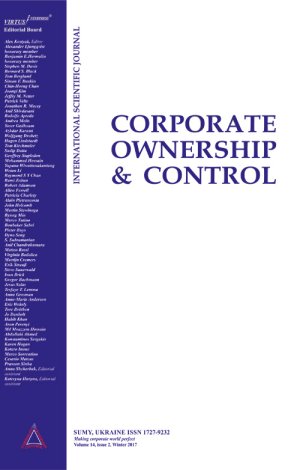
-
 Journal menu
Journal menu

- General information
- Editorial Board and External Reviewers
- Journal Policies
- Publication Ethics and Malpractice Statement
- Instructions for authors
- Paper reviewing
- Article processing charge
- Feedback from stakeholders
- Journal’s Open Access statement
- Order hard copies of the journal
- 50 most cited papers in the journal
THE IMPACT OF ENTRY MODE ON SUBSEQUENT COMMITMENT TO POORLY PERFORMING SUBSIDIARIES
Download This ArticleAbstract
Despite of the extensive research on the choice of how to structure a new foreign subsidiary in the international business literature, few studies have explored how the initial foreign entry mode impacts a multinational’s subsequent activities in the host market. Drawing insights from prospect theory, this paper addresses how a multinational’s entry mode influences the firm’s reaction to negative subsidiary performance. Specifically, we argue that the entry mode (ownership structure of a multinational’s subsidiary) affects the firm’s potential for escalation of commitment to a poorly performing subsidiary. Further, we argue that the relationship between entry mode and a multinational’s escalation of commitment is moderated by three factors – institutional distance between the home and the host country, cost of exiting the host market, and the parent firm’s prior performance. This paper contributes to the literature by presenting the case that initial entry mode influences a multinational’s post-entry activities.
Keywords: Subsidiary Performance, Parent Firm Commitment, Entry Mode, Ownership Structure, Escalation
How to cite this paper: Collins, J. D., Reutzel, C. R., & Li, D. (2007). The impact of entry mode on subsequent commitment to poorly performing subsidiaries. Corporate Ownership & Control, 5(1-3), 482-492. https://doi.org/10.22495/cocv5i1c3p7

















